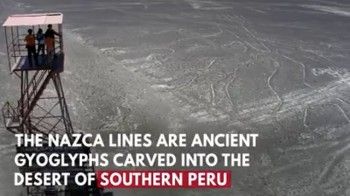After a fierce run-off with Keiko Fujimori, the daughter of former president Alberto Fujimori, Ollanta Humala was elected as President of Peru in 2011.
Promising the "poor and disenfranchised" Peruvians a fair share of the wealth from Peru's key natural resources and at the same time sympathizing with former president Juan Velasco, a left leaning Peruvian General, who nationalized various of Peru's industries, and Hugo Chavez, President of Venezuela, who follows his own political ideology of "Socialism in the 21th century", the former Peruvian Army officer and head of the Peruvian Nationalist Party (Partido Nacional Peruano) Ollanta Humala spread joy amongst his followers and fear amongst national and foreign investors. The day after the announcement of his victory the Lima Stock Exchange dropped dramatically, but stabilized in the following weeks when it became clear that changes would be moderate and that Humala would respect investor's rights, the rule of law and the Peruvian Constitution.
During his campaign he promised to revive social democracy and to address and finally terminate inequity in Peru, improving conditions for the impoverished population. Humala's top priorities: increase the minimum wage and the salaries of the public sector, a guaranteed pension for people over 65 years who have no social protection, expansion of health care including building of hospitals especially in rural areas and implementation of an emergency ambulance network, improvement of the public education system, fight under- and malnutrition as well as expansion of basic infrastructure to all areas in Peru. These measures should have been at least partly financed by a new tax for the mining sector. At the same time Humala promised to maintain foreign investment and economic growth; the only way in Peru the money is rolling in.
Balancing the contrary interests and fulfilling his "Growth with Social Inclusion Agenda" proved difficult. And even though Humala established the Ministry of Development and Social Inclusion to bring a number of social programs on the way and coordinate and improve their efficacy, the once feared socialist and left-wing nationalist moved to the political center and embraced neoliberal policies during his presidency.
And while the economy continued to boom during the first two years of his term in office, by 2014 the decline in international demand for Peru’s natural resources slowed the country’s economy. Additionally, Peruvians, especially those who had voted for him, were disenchanted by his handling of social conflicts, especially the partly brutal and bloody clashes between mining companies and the local population and environmentalists. One political scandal followed the next with numerous members of his cabinet being forced to resign (just to give you an idea during his 5 years term in office he went through 7 prime ministers and countless ministers). And allegations of corruption surrounding him and his politically influential wife Nadine Heredia were on the daily agenda.









































